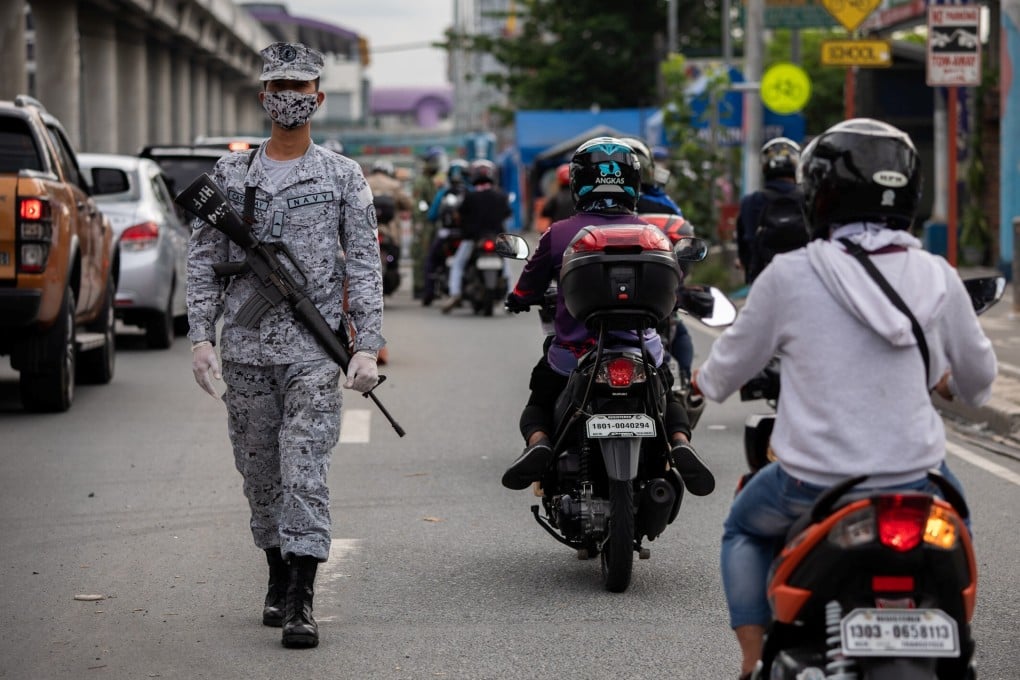Advertisement
Coronavirus latest: Philippines overtakes Indonesia for most cases in Southeast Asia
- The Philippines records 3,561 new infections on Thursday, taking its national tally to 119,460, more than Indonesia’s total of 118,753 cases
- India cases near 2 million; Singapore’s infections to falls as foreign worker dorms almost cleared
Reading Time:6 minutes
Why you can trust SCMP

The Philippines on Thursday recorded another jump in coronavirus cases to overtake neighbouring Indonesia as the country with the highest number of confirmed Covid-19 infections in Southeast Asia.
A recent surge in cases of the virus in and around the capital Manila has pushed authorities to reimpose a lockdown affecting around a quarter of the country’s 107 million people.
The Philippines recorded 3,561 new infections on Thursday, taking its total confirmed cases to 119,460. That is higher than Indonesia’s 118,753 cases.
Advertisement
The death toll rose by 28 to 2,150, which is less than half of Indonesia’s 5,521 fatalities, but is expected to grow after the recent spike in cases.
President Rodrigo Duterte announced late on Sunday a two-week lockdown in and around Manila, which accounts for two-thirds of the country’s economic output.
Advertisement
The restrictions, which came into effect on Tuesday, were reinstated after a group of doctors and nurses warned that the healthcare system could collapse as a result of a surging number of virus patients.
Advertisement
Select Voice
Select Speed
1.00x